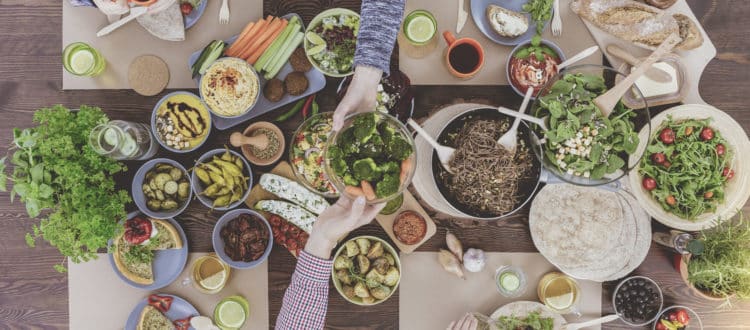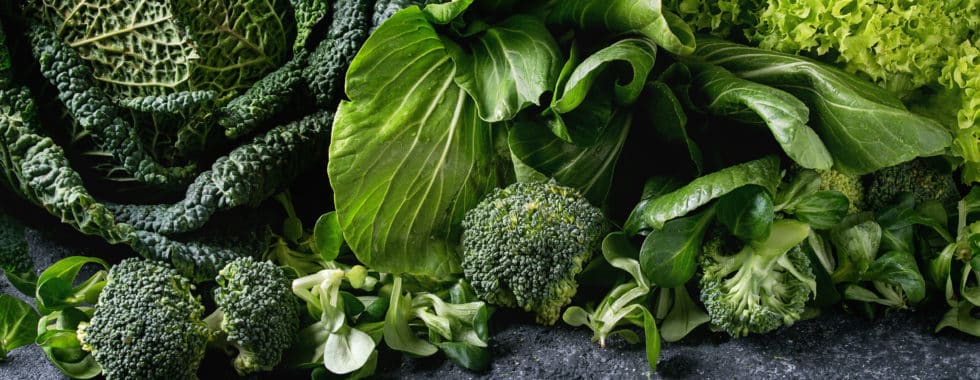How to Maintain Good Health as a Vegan
Walking through your local grocery store, you may have noticed a sudden increase of new offerings in the aisles, specifically plant-based options. These new options are not as sudden as you may think as 95% of U.S. grocery stores now sell plant-based meat products thanks to a 600% increase in people adopting vegan diets within the last three years.
A vegan diet excludes meat, fish, dairy, eggs, and other products that may contain those products and falls under the larger vegetarian diet category. Other forms of vegetarian diets are:
- Lacto-vegetarian: diets that exclude meat, fish, and eggs, but allow dairy products.
- Ovo-vegetarian: diets that exclude meat, fish, and dairy products, but allow eggs.
- Lacto-ovo vegetarian: diets that exclude meat and fish but allow eggs and dairy products.
- Pescatarian: diets that exclude meat, eggs, and dairy products, but allow fish.
The main reasons for people to adopt these diets are to protect animals, preserve the environment, and/or improve one’s health. However, the more restrictive your diet is, the more difficult it can be to receive all the nutrients your body needs to function properly. Avoiding meat and fish will only allow you to obtain iron from other non-animal sources such as nuts, legumes, and grains; and, eliminating dairy from your diet will dramatically lower your sources for Vitamin B12. This lack of options to receive certain nutrients has created a need for people on certain vegetarian diets to incorporate supplements into their diets.
Here are the key vitamins to consider when living a vegetarian lifestyle.
Vitamin B12
As the most important supplement for vegans, Vitamin B12’s role is crucial in the creation of new red blood cells, metabolizing proteins and supporting a healthy nervous system. Some vegans believe if they eat the right plant foods, they will not have to worry about a Vitamin B12 deficiency; but, there is no scientific basis to support this belief. There are studies, however, that have revealed that vegetarians and vegans have a higher risk for a deficiency, especially those who do not take supplements, which can cause serious and irreversible nerve damage, fatigue, and dementia.
Vitamin D
According to the Journal of Neurology, Vitamin D is essential for good health, with its abilities to enhance the absorption of calcium and phosphorus, reduce inflammation, and boost the immune system. Unfortunately, not many foods contain the vitamin naturally (and fortified foods are considered insufficient), which may explain the worldwide reports of high deficiency among vegans and omnivores alike. Vitamin D can also be created from sun exposure as most people need only about 15-20 minutes in the midday sun (without sunscreen) to receive the perfect amount. But, between long working hours indoors and living in northern climates, obtaining the vitamin from sunlight becomes too much of a challenge. Without Vitamin D, you have a greater risk of dementia, Alzheimer’s disease, osteoporosis.
Omega-3
There are two categories of Omega-3 fatty acids:
- Essential Omega-3 Fatty Acids: Alpha-Linolenic Acid (ALA) is the only essential Omega-3 fatty acid, which means it must come from your diet
- Long-Chain Omega-3 Fatty Acids: these include eicosapentaenoic acid (EPA) and docosahexaenoic acid (DHA), which are not essential because the body can make them from ALA.
EPA and DHA promote overall health such as maintaining normal brain function and a healthy heart and may build strong bones and lower the risk of diabetes. A vegan diet can be high in some types of Omega-3 fatty acids and low in other types. A 2017 study discovered the body has a limited capacity to convert ALA into DHA and EPA, creating lower levels of these types of fatty acids among vegetarian diets.
Iron
Used to carry oxygen in the blood and make new DNA and red blood cells, iron can be found in two forms:
- Heme: iron only available in animal products
- Non-heme: iron found in plants
Heme iron is more easily absorbed from your diet than non-heme iron as the body is able to absorb between 7-35% of iron from heme iron and only about 2-20% from non-heme iron. Because of this, vegans are often recommended to consume 1.8 times more than the recommended daily allowance. An iron deficiency can lead to anemia, fatigue, and decreased immune function.
Though there is a concern for vegetarian diets obtaining the proper amounts of nutrients to function, many claim that a whole-food, plant-based diet can easily meet these requirements. As we’ve seen, this is not entirely true as certain nutrient requirements may be too difficult to achieve through diet alone. People adopting vegetarian and vegan diets should add supplements to their diets to avoid these deficiencies.
*Disclaimer: These statements have not been evaluated by the Food and Drug Administration. These products and supplements are not intended to diagnose, treat, cure, or prevent any disease.



